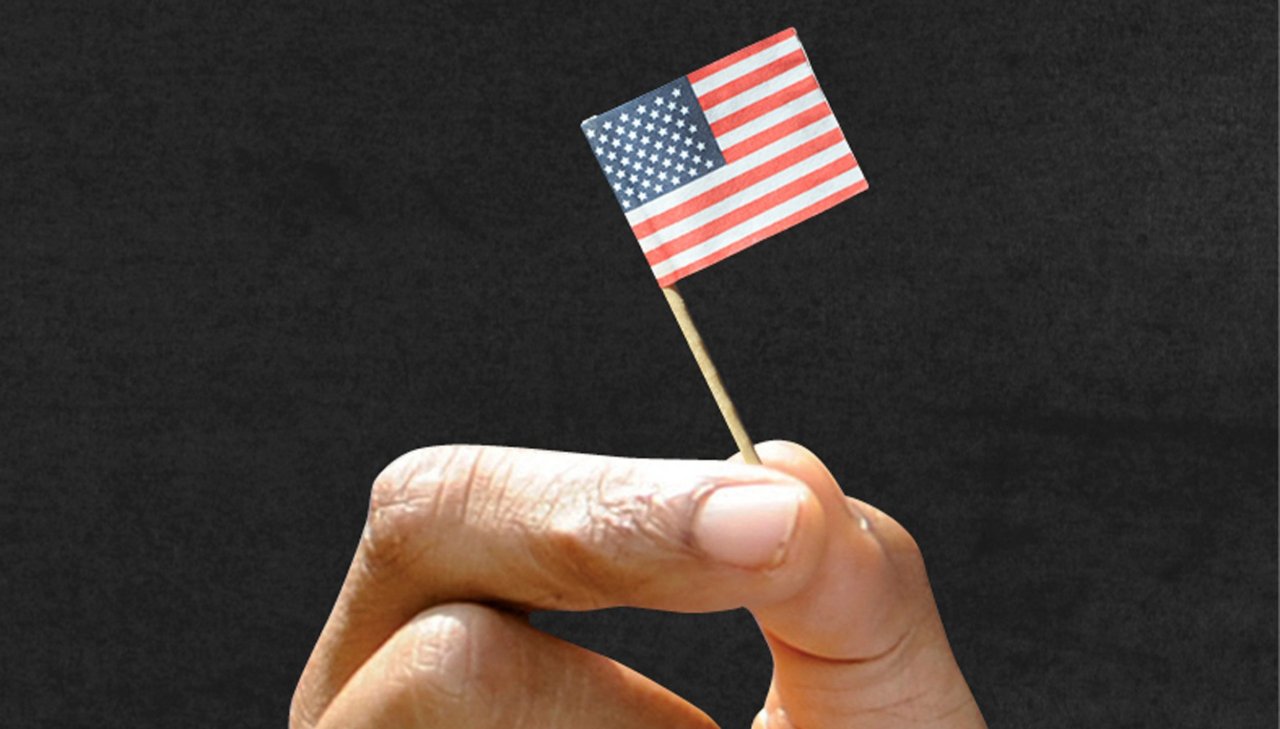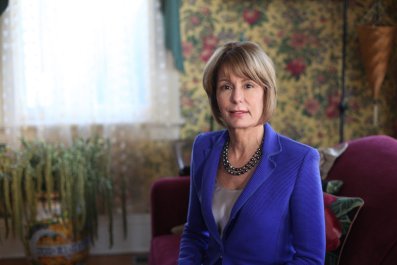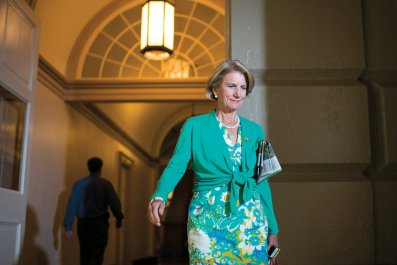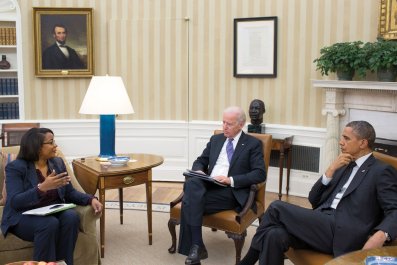The diplomatic debacle over Syria that is unfolding before the eyes of the world represents more than just a conflicted president struggling with a thorny problem of whether to use military force. And it is not merely about the narrow question of humanitarian intervention—whether America should seek to prevent or deter mass atrocities. Rather, it reflects a profound transformation that appears to be taking place in American foreign policy—a transformation that I fear we will regret.
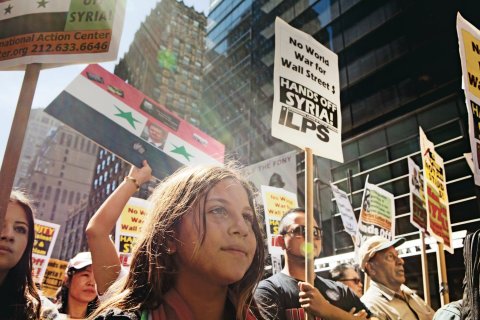
In the years before World War II, as isolationism took hold across America, an alternative way of thinking emerged to counter those who argued that events in faraway countries with unpronounceable names were not America's concern. This philosophy—which came to be known as liberal internationalism—drove the responses of Franklin Roosevelt and Harry Truman first to Hitler's fascism and then to Stalin's communism. John F. Kennedy was invoking this tradition when he famously called for America to "bear any burden ... in order to assure the survival and the success of liberty." The idea was that American foreign policy could not simply be a matter of looking out for ourselves, but ought to be tied to larger ambitions—among them, the creation and preservation of a world order in which democratic values and economic freedom could thrive; the championing of a rules-based international system; the mitigation of regional conflicts and instability; and opposition to oppressive ideologies. As the Cold War unfolded over the subsequent decades, American foreign policy certainly varied from president to president. Yet there remained a basic consensus among policymakers in favor of this core idea.
After the collapse of Soviet communism, liberal internationalism, or at least versions of it, remained at the heart of American foreign policy. Both George H.W. Bush and Bill Clinton saw America's leadership as indispensable to what Bush called a new world order and what Clinton saw as a world of globalization and integration. And both presidents acted to defend these principles. Bush evicted Saddam Hussein from Kuwait, while Clinton stopped Slobodan Milosevic's genocide in Bosnia and prevented a genocide in Kosovo—thereby completing the centuries-long project of creating a Europe whole, free, and at peace. (To be sure, Clinton and Bush were sometimes far from perfect in this regard—see Bush's inaction during the post–Gulf War slaughter in Iraq and Clinton's inaction in Rwanda.)
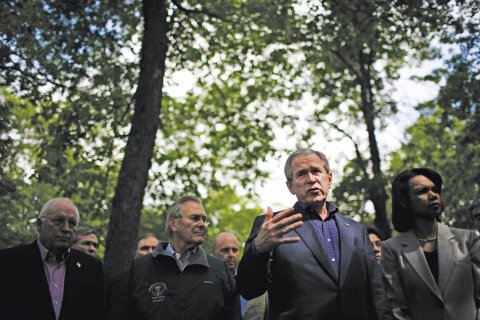
It was George W. Bush who set in motion the events that caused the American consensus on liberal internationalism to splinter and finally collapse. Although his goal of promoting democratic change echoed Kennedy, the methods and the incompetence were unique to his administration. In trying to pursue nation building in Afghanistan and Iraq with few international allies, and then failing so spectacularly, Bush shattered America's confidence in its international leadership. It is worth recalling how tall America stood after the fall of the Taliban in 2001: our adversaries—North Korea, Iran, even China—feared not only our overwhelming military power, but also our skill at leading the world into action. Soon enough, however, that sense of American strength and leadership was gone.
The Bush team's international overreach—combined with the economic calamity of 2008—prompted a sea change in American opinion on the importance of international engagement. In much the same way that the British people and their leaders turned isolationist after the horrors of World War I, for too many Americans, the Iraq fiasco became a rationale to turn inward—a reason to leave Afghanistan to its fate, to let the Europeans handle Libya and Mali, and now to watch Syria burn.
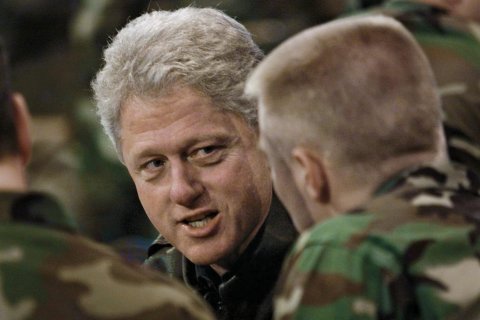
Which brings us to the Obama administration's proposed use of force in Syria. In his address to the nation this week, Obama made a strong case for military action against the Syrian regime of Bashar al-Assad. He nodded to the liberal-internationalist tradition, quoting Franklin Roosevelt's statement that "our national determination to keep free of foreign wars and foreign entanglements cannot prevent us from feeling deep concern when ideals and principles that we have cherished are challenged." And yet the reality of Obama's policies in Syria—as well as the growing isolationist sentiment in Washington as a whole—suggests that liberal internationalism is now under threat like never before.
When it comes to national-security issues, especially counterterrorism, the Obama administration has a fine record of protecting Americans. Whether it is drone strikes against al Qaeda operatives in Yemen and Pakistan or the killing of Osama bin Laden, the president has acted decisively in defense of American interests.
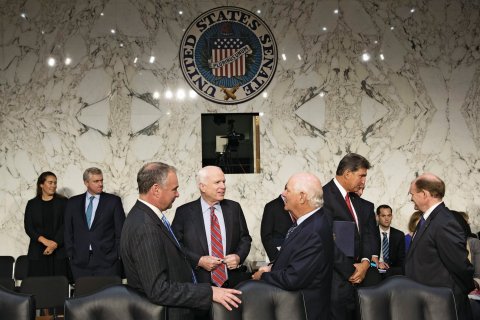
But when it is a question of American leadership or action abroad on behalf of democratic values, the Obama administration's approach has been subdued. In Syria, we have sat on the sidelines for two years as Assad slaughtered 100,000 of his own people—first peaceful demonstrators, then opposition forces and civilian populations alike. Even today the president proposes to do nothing about this slaughter. "My narrow concern right now," he has said, "is making sure that Assad does not use those chemical weapons again." Meanwhile, even this narrow proposal appears not to command majority support among the American public and may ultimately die in Congress.
Where is the moral outrage from the president, the elite media, the foreign-policy community, or the broader public about Assad's mass murder of over 100,000 by conventional arms? Where are the liberal protests in solidarity with the victims of the regime in Damascus? Where is the concern about how the ongoing Syrian civil war could affect other countries in the region—potentially destabilizing Lebanon or Jordan? Where is the sense that America has an obligation not just to do what it can to help Syrians, but to prevent the entire surrounding area from sliding into chaos? Except for Sen. John McCain and a handful of columnists and war correspondents, few seem to care about the larger Syrian calamity, which the United Nations has called the worst refugee crisis in that institution's history. And even fewer call for a humanitarian intervention to stop the Assad regime from slaughtering its own people and flooding the region with desperate refugees.
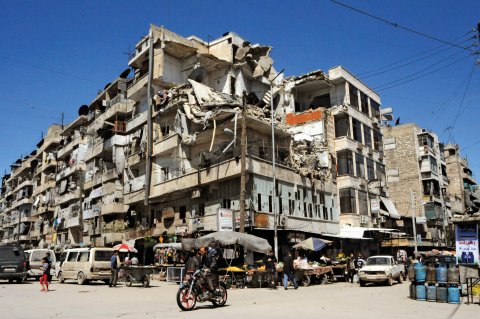
Unlike during Kosovo, when a strategy of diplomacy backed by force convinced Serbia's strongman, Milosevic, to stop the slaughter, no government has offered a convincing plan to stop Assad. And there is no end in sight for Syria's war. Remember, the recent spike in U.S.-Russian diplomacy is only aimed at chemical weapons. If the chemical threat is resolved with U.N. inspectors—a big if—the regime in Damascus will fight on using its conventional military might.
Listen to President Obama, and it's abundantly clear where American foreign policy is headed: "I've spent four and a half years working to end wars, not to start them. Our troops are out of Iraq. Our troops are coming home from Afghanistan. And I know Americans want all of us in Washington—especially me—to concentrate on the task of building our nation here at home."

This talk of nation building at home is not that far removed from George McGovern's famous slogan during the 1972 election campaign: "Come Home America." But whereas McGovern's ideas were very much minority views in 1972, Obama's minimalist approach to foreign policy is now wildly popular at home and has come to be accepted as a kind of Obama doctrine by the rest of what used to be called the West.
While Americans may be encouraged by Obama's assertion that "the tide of war is receding," the greater Middle East—Syria, Lebanon, Jordan, Iraq, Bahrain, Egypt, Yemen—is in turmoil; the Taliban rules in many parts of Afghanistan; Pakistan's border regions are still ungoverned; Iran's nuclear program marches on; and North Korea has just restarted its plutonium production in order to multiply its nuclear-weapons capability. If America is not to be the indispensable nation any longer, as President Obama has signaled, and if liberal internationalism is in decline, who and what will substitute for American leadership on this vast array of global challenges? For the people of Syria, meanwhile, the question is more immediate: will anyone even try to stop the slaughter?



